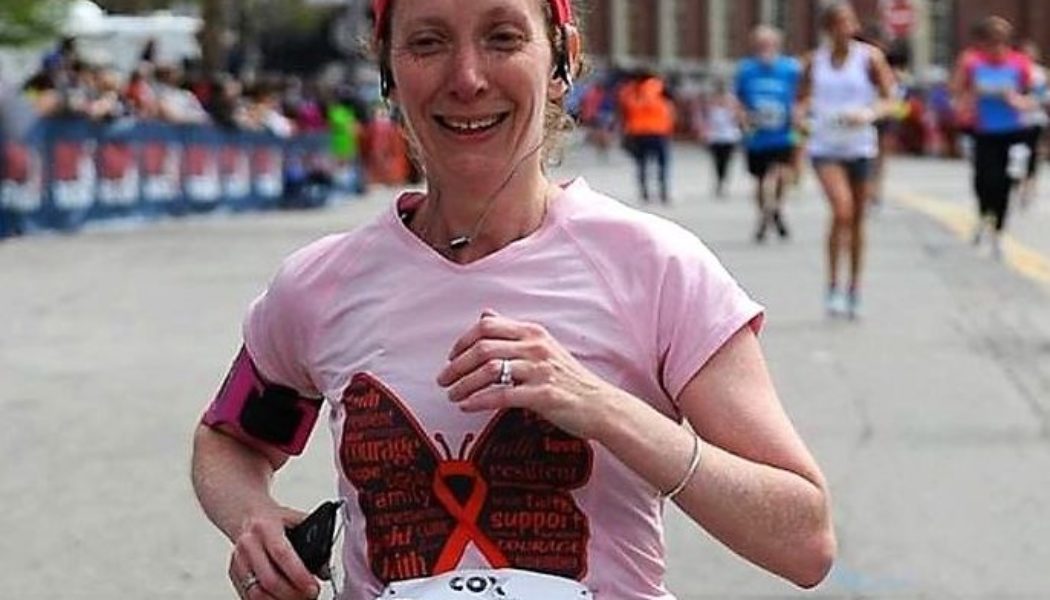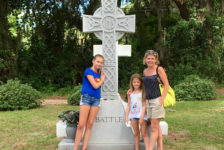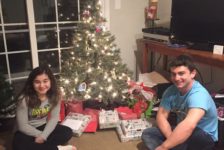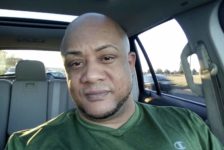KCCure is dedicated to increasing research for everyone battling kidney cancer – including rare subtypes like Jennifer’s papillary tumors that are related to Tuberous Sclerosis Complex. Jennifer, thank you for sharing your story and inspiring all of us!
Jennifer’s story
May 7, 2013 was one of the best days of my life. I accidentally delivered my third daughter at home—after 15 hours of labor and with some heavy martyrdom—while my husband was out walking the dog and while my older daughters were sleeping in the early morning. I felt strong, empowered, and blessed. Six days later, I began having odd symptoms: hot flashes, numbness & tingling in my fingers and toes, rashes and hives. Medical providers chalked them up to postpartum symptoms for weeks, though I thought I maybe had MS or something else.
Bloodwork revealed I was severely anemic. A month of oral iron supplements three times a day did nothing. I was sent for IV iron infusions, during which I was given double the standard dose. The hematologist / oncologist assured me this was classic iron-deficiency anemia despite my protests that I was not anemic during the pregnancy, while sharing my blood supply. After 15 days of infusions, still no progress. My weight loss during this period was rapid, and I relished taking off third baby weight so easily.
Finally, an infusion nurse encouraged me to go to my primary care doc. Hearing him list my sundry symptoms while ordering my CT scans was jarring, yet I had never connected the dots as I lived out the symptoms. Sure enough, 2.5 months after I’d delivered my baby, an abdominal CT revealed a golf ball sized tumor on my right kidney, a chest CT revealed nondescript nodules, and both CTs revealed my skeleton was riddled with lesions. I thought I was a dead woman walking.
After networking with anyone I could think of who might be helpful, I was referred to a wonderful urologist at Massachusetts General Hospital. He squeezed my nephrectomy in two weeks later. Because of my age and sex (36 and female), I was referred for genetic testing to explore why I had developed RCC. Though I grew up in South Florida and had seen a half-dozen dermatologists in my lifetime for skin cancer surveillance, none ever questioned the hypomelanotic spots on my arms and legs, which my father and paternal grandmother have had also. However, through genetic consultation, I came to learn I have tuberous sclerosis complex (TSC), which is associated with relatively higher incidence of RCC, dermatologic symptoms such as hypomelanotic patches, and in upwards of 80% of afflicted individuals, neurological symptoms, which my 9-year-old daughter now has. The lesions in my skeletal system are benign features of TSC too. Some of my lung nodules, which stagnated for a while, likely reflect TSC as well, but lung biopsy and scans have since confirmed some of them represent metastatic RCC.
I am now 40 and was not a dead woman walking. My baby is almost 4, and my older two girls are 5 and 9. I have a wonderful husband and a satisfying career. I have everything to live for, but now I live from scan to scan.
After a failed trial of HDIL-2 this past summer, I have been taking Afinitor daily since late October, 2016. It is a medication approved for treatment of both RCC and TSC. My first scans in late December revealed substantial lung tumor shrinkage. I struggle with anemia, fatigue, and mild immunosuppression but otherwise am tolerating treatment well and will have my next scans later this month.
I run and use running as a litmus for my health state. Last year at this time, I was training for half-marathons. By June, on the heels of two half-marathons in May, I could not run a mile. This year, with treatment underway, I am pushing through 5Ks and will participate this month in The Renal Race in Wilkes-Barre, PA to benefit kidney cancer research.
After learning that my daughter also has TSC, I’ve become more involved advocating for the TSC community through social media. Networking with others and being connected to a broader community has helped me educate myself and to share my knowledge with others. As much as I have gained from my treatment teams at Mass General, Beth Israel Deaconess, and now Yale, my unique combination makes me a lab rat for my oncologists, and that’s okay—I hope that my story and my treatment will help inform future approaches for helping everyone impacted by TSC and RCC.
In 2018, Jennifer Leiser’s battle with cancer accelerated rapidly. Sadly, Jen passed away on March 30, 2019.





